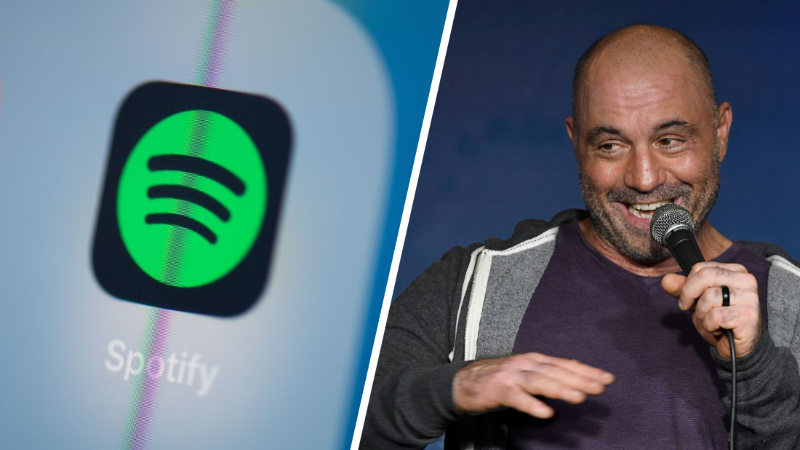Music streaming service Spotify is not bending to pressure from a boycott campaign over concerns that popular podcast host Joe Rogan is spreading COVID-19 misinformation.
The boycotts began earlier this month after 250 medical professionals and professors signed a letter urging Spotify to do more to address what they say is COVID-19 misinformation being spread on the service.
Specifically, they pointed to Rogan — the host of the popular “Joe Rogan Experience” podcast — as an alleged spreader of misinformation.
That letter focused on an episode where Rogan, who is not a medical expert, interviewed Dr. Robert Malone.
As The Washington Post notes, “Malone, who bills himself as having played a key role in the creation of mRNA vaccines, has emerged as one of the most controversial voices of the movement against coronavirus vaccines and health mandates.”
Last week, singer Neil Young posted a public letter calling Spotify the “home of life-threatening Covid misinformation” and said it would have to choose between keeping his music on the platform or Rogan’s podcast.
The streaming service later revealed it would remove Young’s music.
Following Young’s ultimatum, other artists also pulled their music from Spotify. And so-called “cancel culture” kicked into gear as the hashtag “Delete Spotify” began trending on social media as users boycotted the streaming service.
Its market value plunged more than $2 billion dollars over the past week amid the protest.
On Sunday, Spotify’s C.E.O., Daniel Ek, responded to the pressure campaign in a public letter. He wrote, “Personally, there are plenty of individuals and views on Spotify that I disagree with strongly. We know we have a critical role to play in supporting creator expression while balancing it with the safety of our users.”
There’s been a lot of conversation about information regarding COVID-19 on Spotify. We’ve heard the criticism and we’re implementing changes to help combat misinformation. https://t.co/ic8jfR1RNR
— Daniel Ek (@eldsjal) January 30, 2022Do you think Spotify made the right decision?
“In that role, it is important to me that we don’t take on the position of being content censor while also making sure that there are rules in place and consequences for those who violate them,” he added.
Instead of caving to the pressure to boot Rogan, Ek shared that the company is publishing its content policy, which the Wall Street Journal reports was not changed amid the controversy, “to help our users understand how Spotify assesses all content on our platform.”
Additionally, it will “add a content advisory to any podcast episode that includes a discussion about COVID-19” that will direct listeners to a “hub” that “provides easy access to data-driven facts, up-to-date information.”
Despite Spotify’s previous decisions to remove some of Rogan’s episodes, the Journal reports that the platform will not remove his episode with Malone.
As the Journal put it, “The company’s stance shows it is resolute about keeping its stated commitment to open dialogue, and its lucrative relationship with certain podcasters, while responding to concerns of various creators and customers on which it relies.”
For his part, Rogan said in a video posted on Instagram on Sunday that he agrees with the steps Spotify announced and admitted that he “could do better” at “having more experts with differing opinions right after I have the controversial ones.”
View this post on Instagram
“I would most certainly be open to doing that. And I would like to talk to some people who have differing opinions on the podcasts in the future. I do all the scheduling myself, and I don’t always get it right,” Rogan added.
He also pushed back on allegations that he spread misinformation as he said, “many of the things that we thought of as misinformation just a short while ago are now excepted as fact.”
While Spotify would be within its rights to drop Rogan, its decision to take modest steps in response to the pressure campaign should be seen as a win for freedom of speech and the free exchange of ideas.

























 Continue with Google
Continue with Google